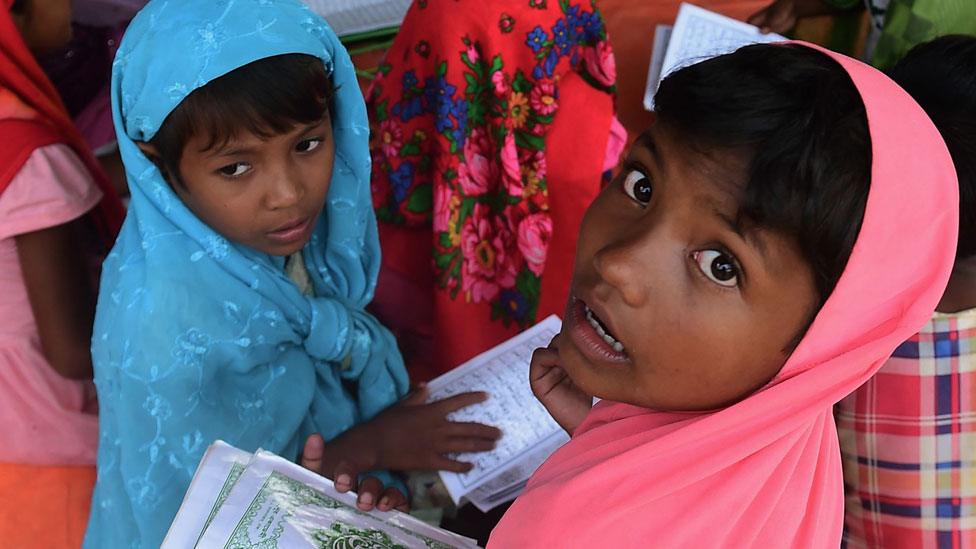Myanmar Rohingya crisis: UK medics to help tackle diphtheria
- Published
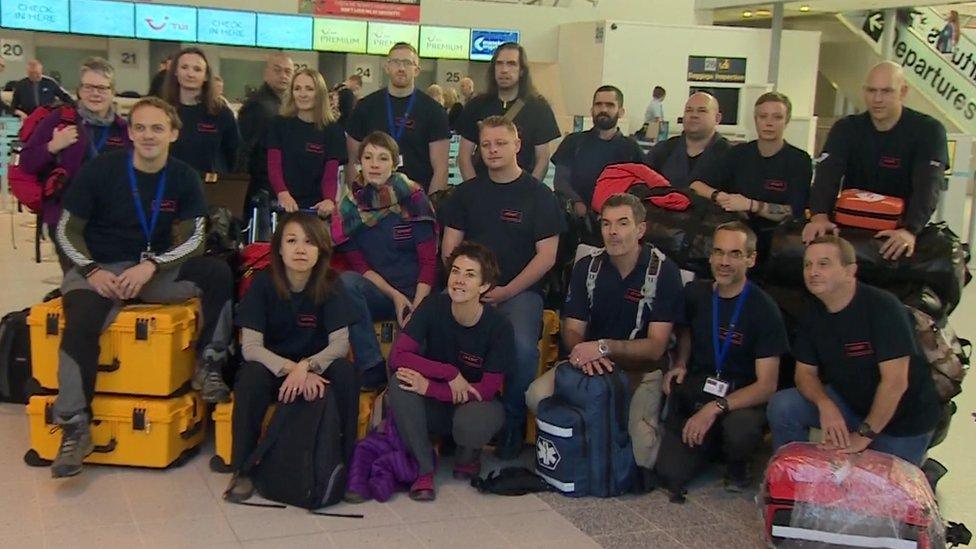
A team of British medical staff is travelling to Bangladesh to help tackle an outbreak of diphtheria affecting Rohingya Muslim refugee camps.
The first of more than 40 doctors, nurses and firefighters are on their way to Cox's Bazar - at the request of the World Health Organization.
Cox's Bazar is home to more than 600,000 Rohingya refugees who have fled violence in bordering Myanmar.
The government said the deployment was "another proud moment for the NHS".
This is the first deployment of Britain's emergency medical team (EMT) since it was certified by the World Health Organization in 2016.
The staff, who come from different parts of the NHS across the UK, will be at the camps for six weeks working to fight the spread of diphtheria.
The highly contagious disease has already killed at least 27 people and up to 160 new cases are being reported daily.
The infection is now very rare in the UK, but affects the nose and throat and can lead to difficulty breathing, heart failure, paralysis and death.
Some of the British medical team left from Manchester Airport on Thursday
A group of 16 medics left from Manchester airport on Thursday, with the remaining team members following in the coming days and weeks.
Among them was Derek Sloan, an infections and disease doctor who is usually working in Fife but has also had experience of working in the field.
He described the "emotional and psychological cost" of the work.
"Sometimes you don't really feel that until you get back," he told the BBC.
"Having done this kind of work before doesn't make you immune to the difficulties of it. But we're also a good source of support to one another and we are used to working in a difficult environment."
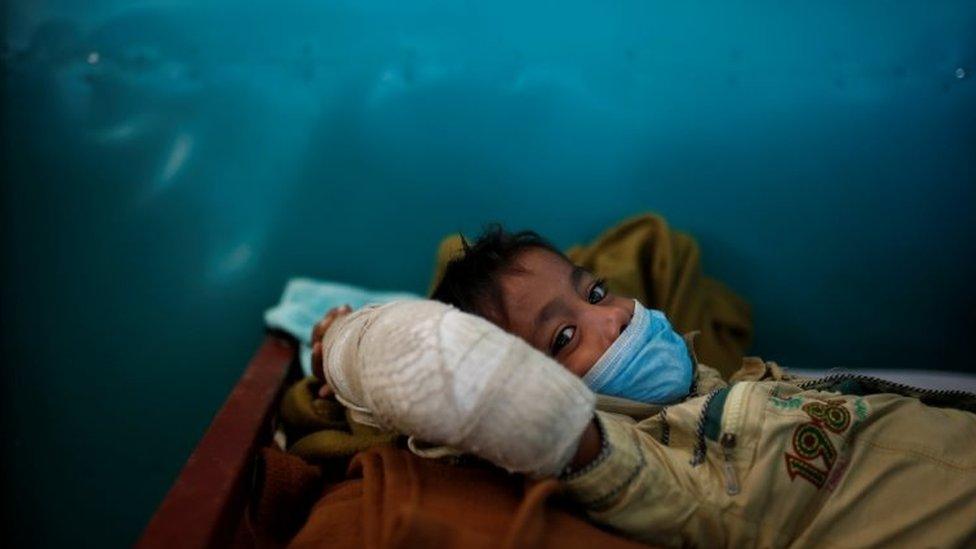
Yasin Arfat, six, is among the Rohingya refugees suffering from diphtheria
As of 21 December, the charity Medecins Sans Frontieres (MSF) said it had seen more than 2,000 suspected cases in its health facilities. The majority of patients were between five and 14 years old.
Crystal VanLeeuwen, the emergency medical co-ordinator for MSF at one of the camps, said the living conditions of the camp presented added challenges.
There is a "very poor water and sanitation situation, overcrowding... and low vaccination coverage", she said.
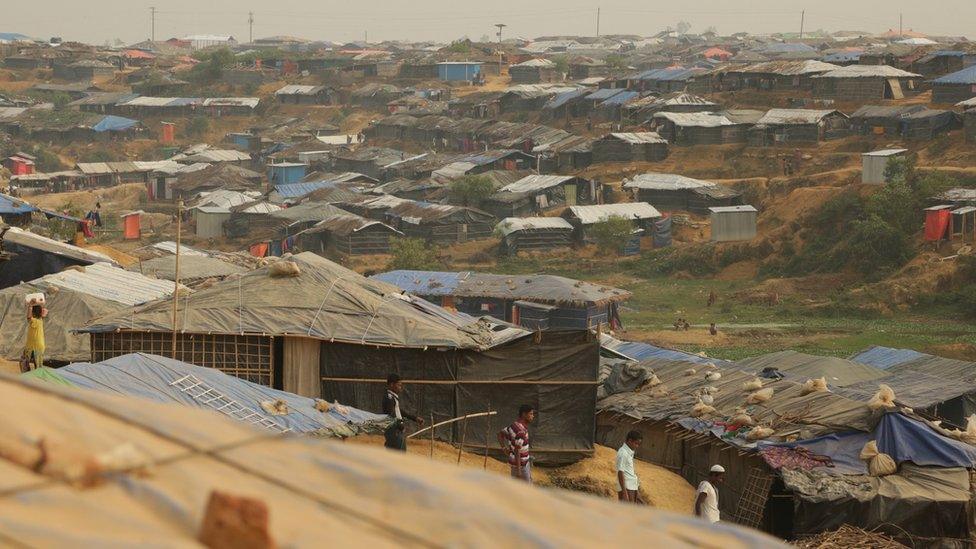
The Kutupalong refugee camp in Bangladesh has become overcrowded
An estimated 620,000 Rohingya have fled to Bangladesh following persecution from the Burmese military in their native state of Rakhine, since August.
The United Nations described the military offensive in Rakhine, which provoked the exodus, as a "textbook example of ethnic cleansing".
Myanmar's military says it is fighting Rohingya militants and denies targeting civilians.
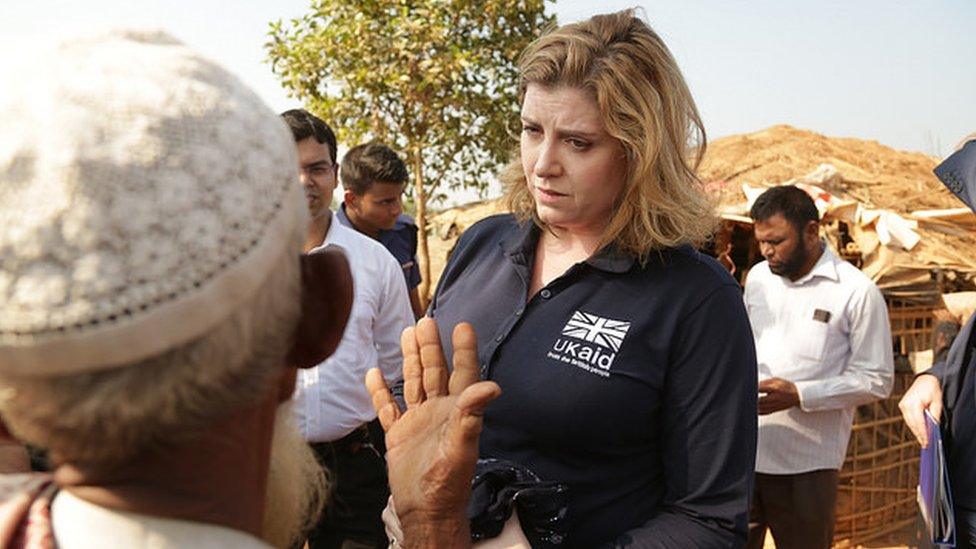
UK minister Penny Mordaunt met Rohingya refugees in Cox's Bazar earlier this year
International Development Secretary Penny Mordaunt said it was "absolutely right" for the UK to "step up" and help ease the suffering of the Rohingya families.
"This will be an absolutely critical deployment, in a race against time for men, women and children at risk of dying from one of the world's cruellest infections," she added.
The deployment will be funded from the department for international development's (DFID) Bangladesh humanitarian budget .
- Published27 December 2017
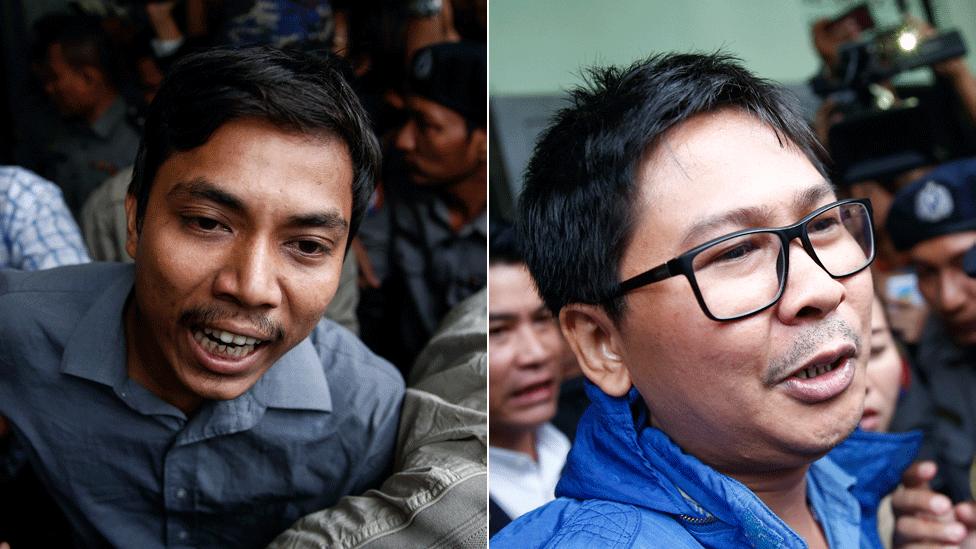
- Published21 December 2017
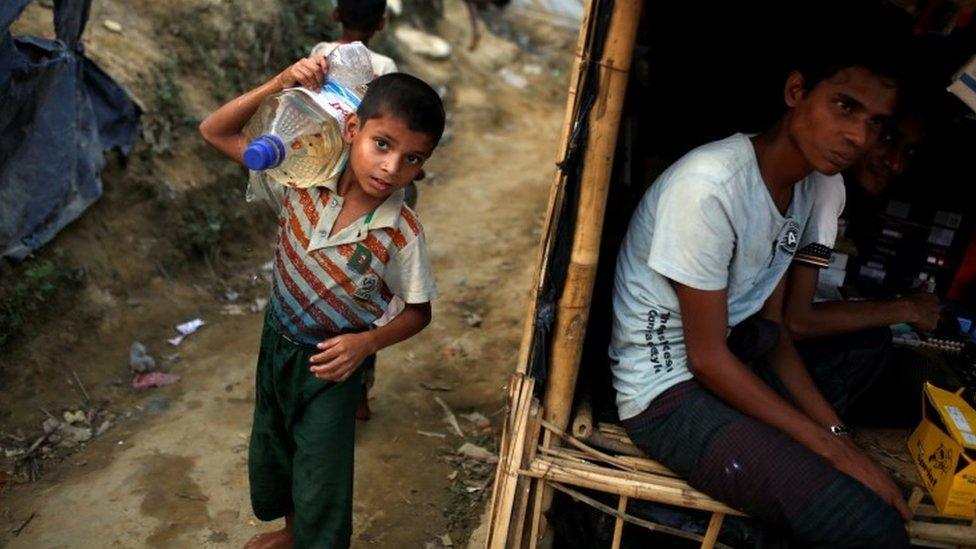
- Published23 January 2020
